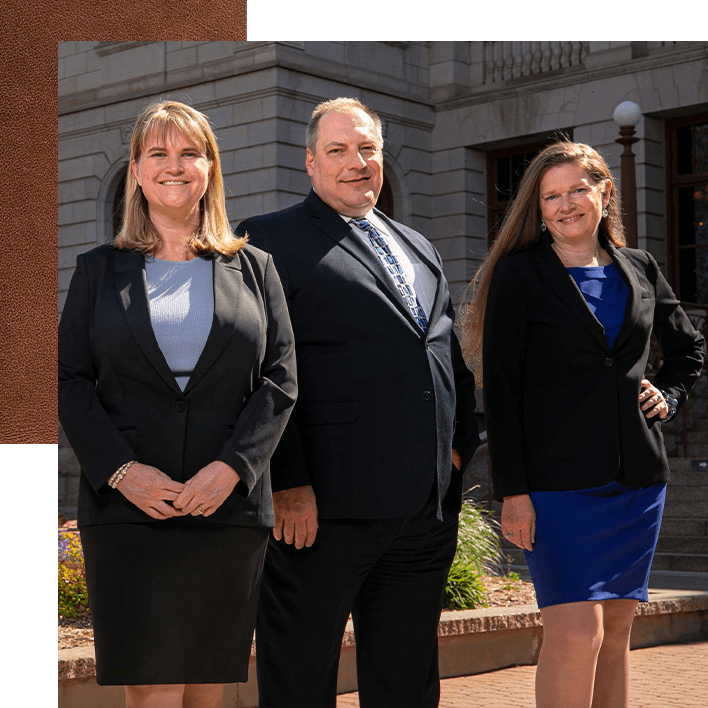

The Difference Between Probation and Parole
Probation is an alternative to jail that affords people who have been convicted of a crime an opportunity to live in the community and work. Parole is for when people convicted of a crime have served a portion of their prison sentence and receive an early release.
What Does Parole or Probation Violation Mean?
When a person is on probation or parole, they are subject to certain conditions imposed by the court or the parole board. The terms are typically determined by the circumstances of the crime, your previous criminal history, and the likelihood of you reoffending. This means that each person may have their own unique list of conditions, some more restrictive than others.
If you violate your parole or probation, it means you didn’t follow the terms of your order or committed another crime. If you are accused of violating the terms of your probation or parole, you may face extremely serious legal penalties and should consult with a criminal defense attorney in Colorado Springs as soon as possible.
You can count on the parole and probation attorneys at the Gasper Law Group to work to resolve the matter in a way that is most beneficial for you. Our probation and parole violation lawyers represent clients in El Paso County, Teller County, Pueblo County, Douglas County, Fremont County, and most of southern Colorado.
If you are accused of violating probation or parole, contact us immediately for a free initial consultation.

(719) 212-2448 or complete our contact form.
How Often Do Probation and Parole Officers Visit?
Probation and parole officers (PPOs) do not have to give any notice of their visits. Sometimes visits are scheduled, while other times, PPOs show up when you least expect them. Visits may be done any day of the week and at any time. While they typically occur between 5am and 10pm, they may happen outside of those hours.
Probation and parole officers are allowed to visit a person’s place of employment, treatment provider, or residence and they have the right to search homes and vehicles. If your parole or probation sponsor denies entry to the residence, you will need to find another place to live right away.
Most visits with probation officers take place over the phone or in the probation officer’s office. In fact, it’s fairly common for a probation officer to never conduct a home visit for a less serious crime during the course of probation. Don’t be lulled into a false sense of security: Just because your probation officer has never visited your home or workplace before doesn’t mean that they can’t.


-
"They answered every call, every email from me in the long process of this probate and they all was very professional"
I really want to Thank Jack, Emily, and Therese for all their hard work taking care of my sister Pamela Bellos’s estate , they answered every call, every email from me in the long process of this probate and they all was very professional
- Karen B. -
"My charges were dropped and we walked away with all parental rights/custody and a restraining order against the other party."Caryn Adams and her team are hands down the BEST. I don't think I would have made it through what I went through without her by my side. My charges were dropped and we walked away with all parental rights/custody and a restraining order against the other party.- Avarie J.
-
"Caryn Adams took such good care of me"Caryn Adams took such good care of me threw out my legal situation and was constantly keeping me in the loop! Couldn’t ask for better representation!- Ryan L.
-
"A courteous, respectful, and efficient group in all phases and aspects of due diligence"Highly professional team of attorneys and paralegal staff who work hard to reach the best outcomes for their clients. A courteous, respectful, and efficient group in all phases and aspects of due diligence, and discovery with effective preparation of cases entrusted to them. The partner representing me, Ms. Caryn Adams was truly impressive in her knowledge of the law, her empathy, and her care for getting the best possible resolution in my favor in pre-trial negotiation. And I have no doubt she and her team would be just as dedicated and efficient in more complex defense situations. I recommend them highly and without reservation in all areas of the law in which they are eminently qualified.- Salah H.
-
"I highly recommend you use them to make your life easier. I couldn’t ask for a better team!"I used the Gasper Law Group when I was going through my divorce and child custody case. I got the outcome I wanted, Carrie Kelly and Kimberly Lucas made my life 10x easier considering i didn’t know what I was doing. They were patient, and caring and even made me laugh a few times. I highly recommend you use them to make your life easier. I couldn’t ask for a better team! I’m now happily divorced and got my kiddo 50/50! You guys rock and if anything comes up in the future, I’ll be sure to use you guys! Thanks so much gasper law group for the fast and professional services!- Micheala E.
-
"If you need any Legal advice or assistance reach out to the Gasper Law Group. 5 star service."Gasper Law Group is great to work with. I recently did Estate Planning and they were awesome. Explained everything thoroughly. Emily, Jack, Therese , Holly, and Emily are all very professional. If you need any Legal advice or assistance reach out to the Gasper Law Group. 5 star service.- Ruby D.
-
"Don’t have much hope? Leave it to Caryn she will change that."I dug myself a deep hole and didn’t have much hope or luck with the attorney I used before. I called Gasper law group and Caryn Adams was my attorney that took charge of everything. I couldn’t have asked for anything better the outcome she made possible is everything I wanted. She is great at her job and takes cases seriously … don’t have much hope leave it to Caryn she will change that. Thanks Gasper law group you’re the best!- Mike L.
-
"From the start, they treated me incredibly well and were very open about everything from my situation."The Gasper Law Group was fantastic. From the start, they treated me incredibly well and were very open about everything from my situation. They were incredibly attentive to me and my case and made sure I fully understood everything while supporting me in every way they could. Caryn was AMAZING in handling my case. Her knowledge, confidence, and attentiveness were second to none. I would recommend them to anyone for any situation.- Jason E.
What Happens When Probation or Parole Is Violated?
Violating your probation or parole has the potential to result in extremely serious penalties. If you are accused of violating your probation, you will have a court hearing, usually before the judge who sentenced you to probation. Unfortunately, in probation hearings, the judge decides the case on the burden of proof called “preponderance of evidence.” This means that if the judge believes you probably violated probation, they will simply rule that you are guilty. In many cases, courts order probation in cases where they suspend the imposition of a prison sentence, thus if the judge decides that probation was violated, the court has the power to impose the original terms of the sentence as well as additional penalties. The sole exception to this burden of proof is that new crimes need to be proven to the judge beyond a reasonable doubt.
If you are accused of violating your parole, you will have a hearing before a member of the Colorado State Parole Board. You will either wait for your Parole Board Hearing in jail or in the community on a summons. If the Parole Board decides that parole was violated, parole can be revoked and you can be sent back to prison.
How Our Probation and Parole Attorneys Can Help You
Fortunately, there are many ways that an experienced parole and probation attorney can help people who have been accused of violating their probation or parole. In some cases, the entire case may be the result of a misunderstanding or a misinterpretation of the conditions imposed by the court or the board. In others, it may be possible to negotiate an alternative penalty for the violation that does not involve incarceration, such as treatment, house arrest, work release, or community service.
If you have been accused of violating probation or parole, you need a competent and knowledgeable attorney by your side. The seasoned parole and probation violation attorneys at the Gasper Law Group have the skills and resources needed to effectively represent you and your best interests.
Depending on the facts of your case, our probation and parole violation lawyers can:
- Gather evidence and question witnesses to help defend against the violation charges
- Defend your behavior and argue against probation or parole revocation
- Show mitigating circumstances
- Explain why the terms of your probation or parole should be modified
- Negotiate and explore alternatives to probation or parole revocation





Contact Our Colorado Springs Parole and Probation Violation Lawyers
If you have been accused of violating the terms of your probation or parole, you should speak to an attorney as soon as you can. The attorneys at the Gasper Law Group are committed to protecting the rights of people who have been accused of probation or parole violations and do everything we can to keep them out of jail.
Contact us today for a free initial consultation where we will discuss the facts of your case, inform you of the potential outcomes, and explain your legal rights.

Why Choose The Gasper Law Group?
-
Offering Payment Plans
-
Helping People First
-
Committed to the Community